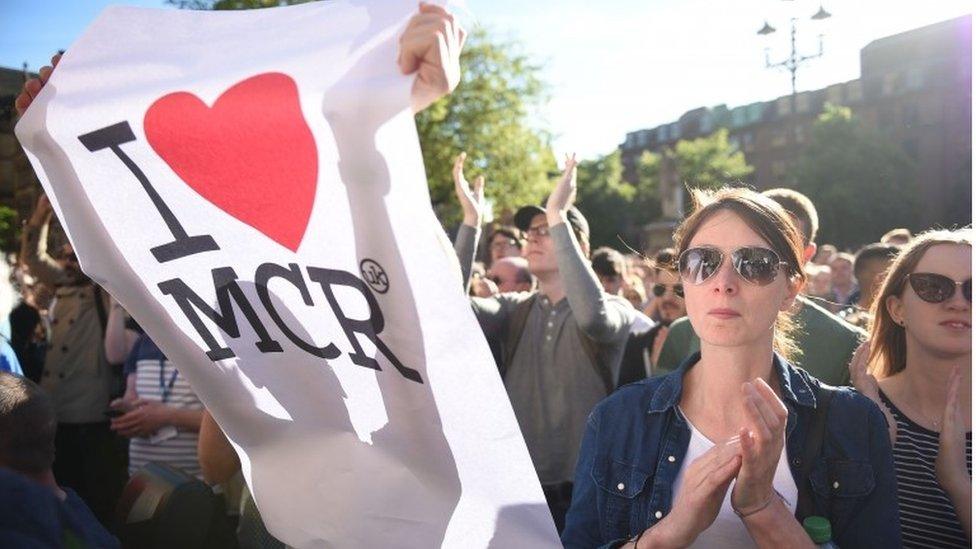Manchester attacks: What teenagers need to know
- Published
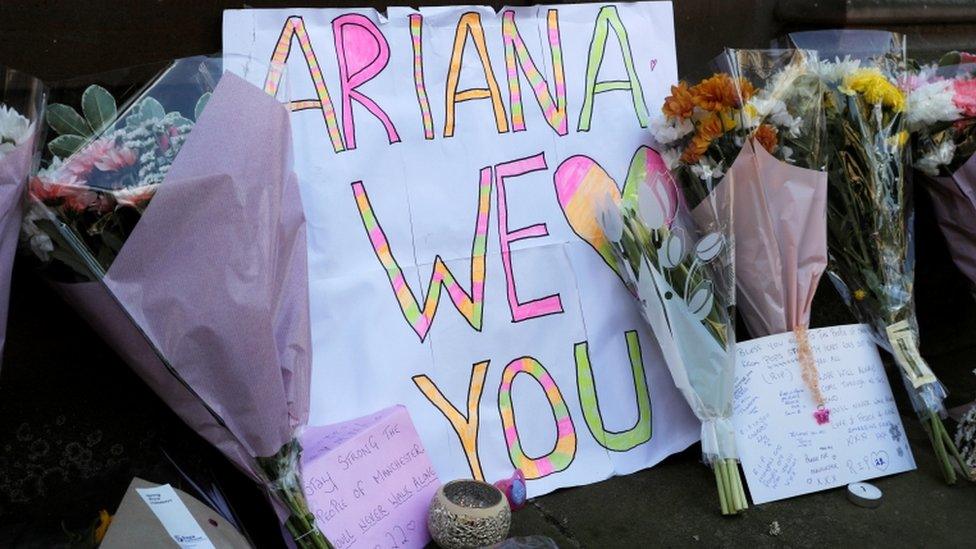
US singer Ariana Grande was just leaving the stage at Manchester Arena when a bomb exploded right outside, killing and injuring dozens - including teenagers. Here, Alison Jamieson, author of Talking about Terrorism, answers some of your questions.
What happened?
The gig was just about over and crowds were swarming towards the exits when a "huge bang" went off.
Some thought the noise was balloons popping, but in fact it was a man setting off a home-made bomb.
We know that 22 people died - including an eight-year-old girl and a student - and more than 50 were hurt.
The impact threw some people into the air and sent the music fans into a state of panic, desperate to get out of the building.
Who does things like this?
At the moment, we know very little about the man who did this.
Terrorists - people who try to make themselves heard through violence - think they are acting not just for themselves but for the wider community.
Somebody who does this sort of thing may be acting out of hatred towards a particular group of people or feel that they have been treated badly.
Alison says attackers are usually acting out of anger.
They have sometimes followed instructions through websites, or acted alone, or they might have been trained.
It's too early to know for certain if the man who carried out this attack had views connected to political or religious belief systems.
But the so-called Islamic State, which is a group fighting wars in Iraq and Syria, has said it is behind this attack.
Sometimes with attacks like these the person involved might be miserable, hate his life and want to get into the history books.
Again, an attacker could be lonely or unwell, and may not be thinking in a way that most people think.
Why target young people?
We don't know exactly who he meant to target but with a lot of these sorts of attacks, it's a question of opportunity. Some places like underground rail systems, shopping centres or, in this case, Manchester Arena can't be completely protected.
These types of venue are possibly easier to target than Parliament or town halls, so you can sometimes say the attacker is just choosing the easier option.
Could this happen to me?
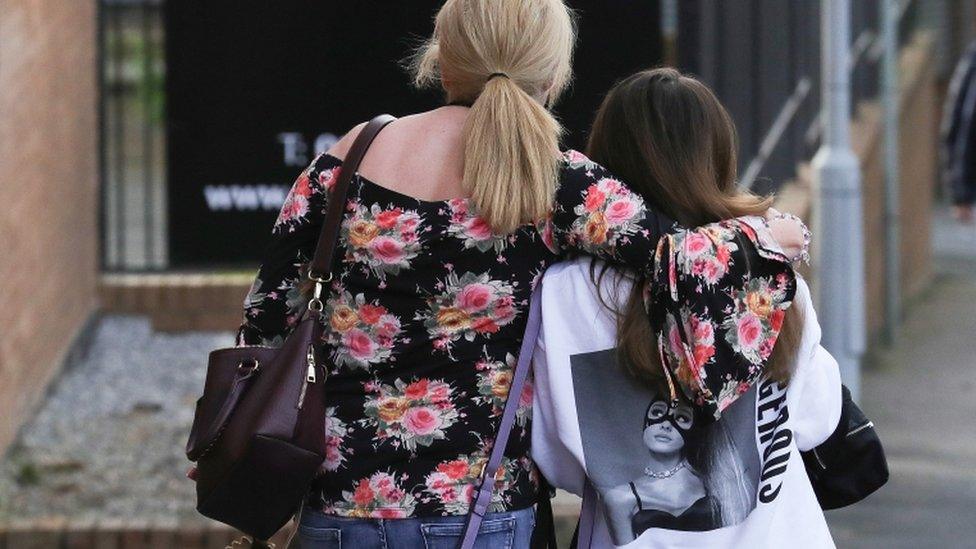
Terror attacks are very, very rare in most countries. But no-one is 100% safe and you can't give people false assurances, says Alison.
Britain is largely a safe place to live.
It's an island so it's not easy to smuggle weapons in and it's also a place where people look out for each other. Whatever your background, there's a group who will look out for you.
The police, security services and the government are all working to keep you safe.
How can I stay safe?
Stay alert and keep your eyes open
Tell someone where you are going
Keep phone numbers with you so you can stay in touch
Be friendly and don't stir up antagonism
Remember we are all part of a community and all want to live together peacefully
What can I do to help?
Manchester seems to have shown extraordinary courage and generosity, says Alison. Kind people offered beds for people to sleep in, gave them lifts and left food and drink at the scene for the emergency services.
Some ideas for how you and your friends could help include:
Writing a letter to an affected school
Offer to raise funds for a school or youth centre
Hold a concert in your own school
Set up a students' bursary in the name of a victim
Organise anything that involves breaking down boundaries by bringing together groups of people who wouldn't normally meet
Alison Jamieson has written Radicalisation and Terrorism: A Teachers' Handbook for Addressing Extremism (2015) and Talking about Terrorism: Responding to Children's Questions (2017)
- Published23 May 2017
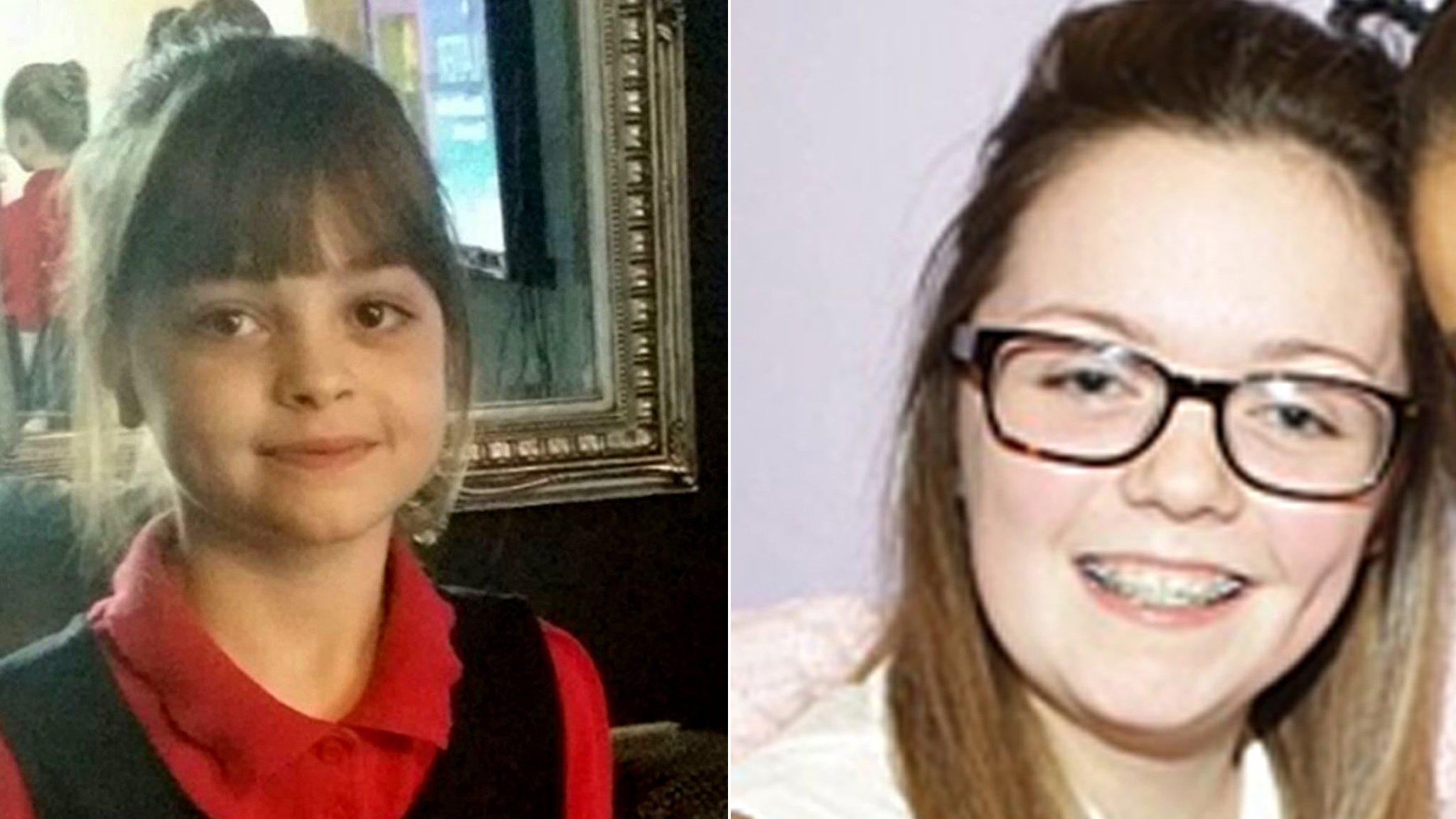
- Published22 May 2017
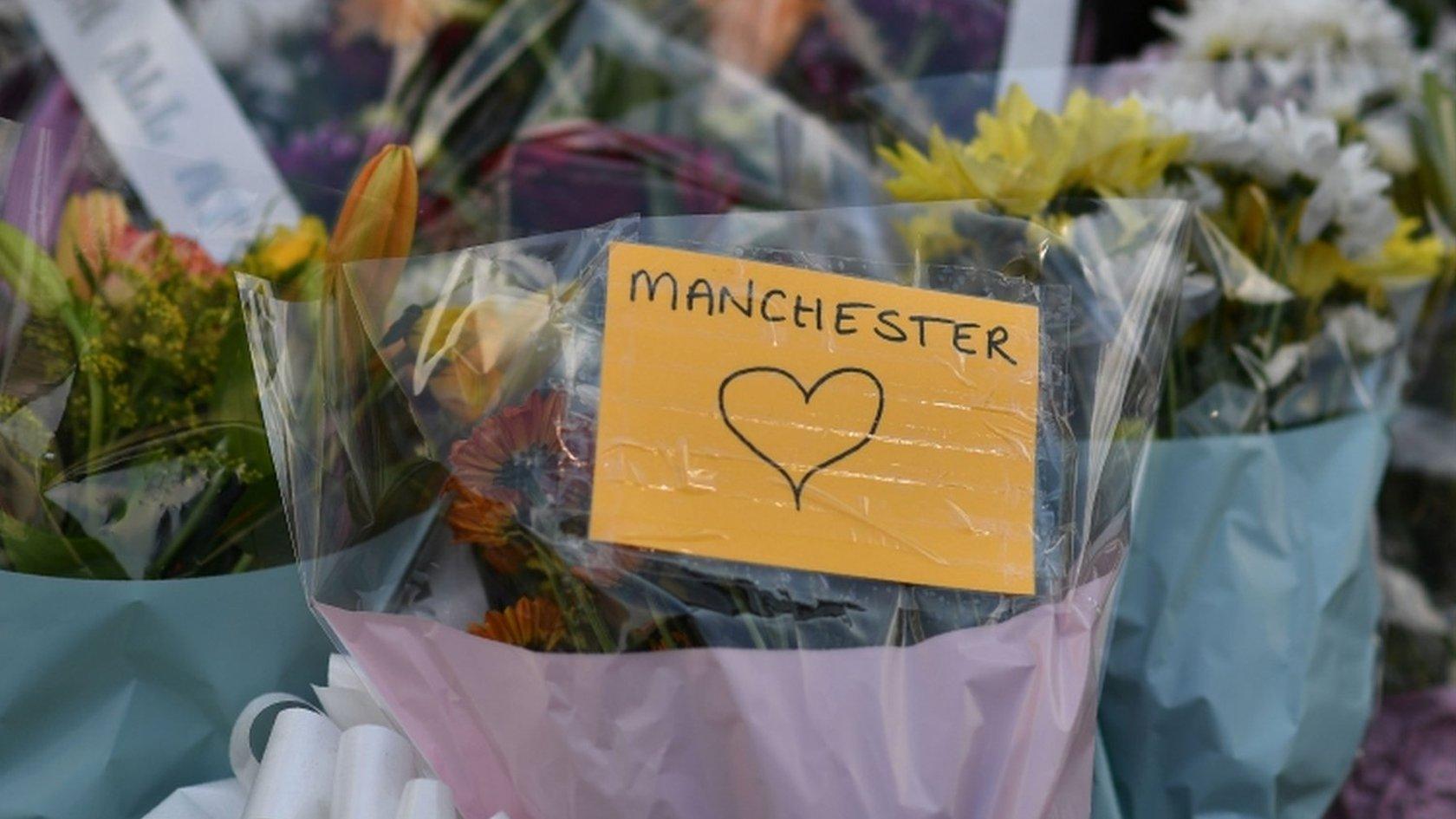
- Published12 June 2017
